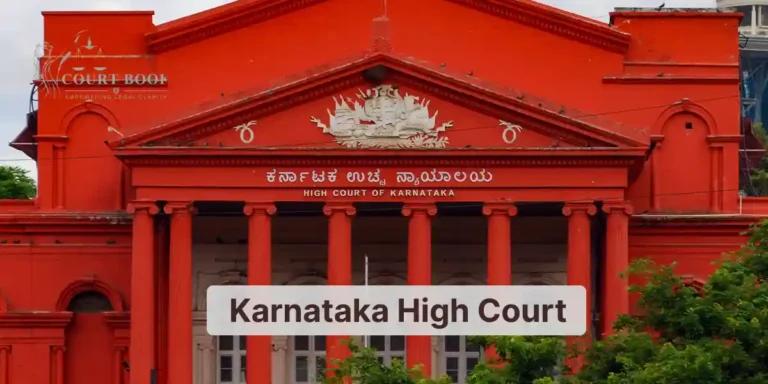In a recent ruling, the Karnataka High Court has once again emphasized that courts should exercise their power to record additional evidence under Section 391 of the Criminal Procedure Code (CrPC) only in rare and exceptional cases. The observation was made by Justice M. Nagaprasanna while dismissing a criminal petition filed by J. Ramesh, who had approached the High Court challenging the rejection of his plea by the Sessions Court for calling certain documents as additional evidence.
The matter arose from a dispute between J. Ramesh and M/s Lakshmi Precious Jewellery Private Limited. Following alleged dishonour of cheques issued by the petitioner, proceedings were initiated against him under Section 138 of the Negotiable Instruments Act. The Magistrate convicted Ramesh through a judgment dated December 29, 2023. After the conviction, Ramesh filed an appeal before the Sessions Court (Criminal Appeal No. 149 of 2024) and also filed an application under Section 391(1) CrPC seeking to bring additional documents on record, which he claimed were vital to prove his innocence.
Earlier, during the trial stage, Ramesh had filed an application under Section 91 CrPC requesting the same documents. The Magistrate had rejected that application on June 27, 2023, highlighting that the documents sought were not directly connected to the case and that the petitioner had other legal avenues to obtain them, which he failed to use. The rejection order had become final as Ramesh did not challenge it.
When the matter reached the Sessions Court, Ramesh filed another application under Section 391 CrPC, seeking the very same documents. The Sessions Court, after reviewing the case, rejected this request too, reasoning that the petitioner was merely repeating the same plea in a different form, which was not legally permissible.
Before the High Court, the petitioner argued that Section 391 CrPC grants power to summon documents or allow additional evidence at any stage during the appeal. He contended that the documents were crucial for his defense and that the opportunity denied at the trial stage should now be granted by the appellate court.
However, the respondent’s counsel strongly opposed this submission. Senior Advocate Sandesh J Chouta, representing the respondent, pointed out that the power under Section 391 CrPC is not absolute and should only be invoked in truly exceptional situations. He argued that the petitioner’s repeated attempts to secure the same documents, which had already been rejected during the trial, were merely tactics to delay the proceedings.
After hearing both sides and reviewing the record, the High Court discussed the legal principles surrounding Section 391 CrPC. The court observed that the provision enables appellate courts to allow additional evidence, but such power is meant to be exercised sparingly. Citing multiple judgments from the Supreme Court and other High Courts, including Zahira Habibulla H. Sheikh vs. State of Gujarat, the court clarified that additional evidence should only be allowed when the party was genuinely prevented from presenting it during the trial despite exercising due diligence.
The High Court noted:
"On a coalesce of judgments rendered by the Apex Court and that of other High Courts what would unmistakably emerge is, that power to record additional evidence under Section 391 of the Cr.P.C. should only be exercised when the party making such request was prevented from presenting the said evidence in the trial, despite due diligence."
In the present case, the court held that the petitioner had already made an effort to introduce these documents during the trial, but the application had been rejected and the rejection had become final. Seeking the same relief at the appellate stage, the court observed, was not justified and seemed to be an attempt to prolong the litigation unnecessarily.
The court further highlighted:
"This Court cannot but infer that it is only a ruse to drag the proceedings further. Though the concerned Court has the power to secure additional evidence under Section 391 of the Cr.P.C., it is as observed by the Apex Court and other Courts, to be exercised in rare and exceptional cases."
Concluding that the petitioner failed to make out any exceptional grounds warranting the exercise of this power, the High Court upheld the Sessions Court’s order and dismissed the petition, stating:
"In the light of the aforesaid circumstances, finding no merit to interfere with the well-reasoned order of the concerned Court, the petition being devoid of merit, stands rejected."
The case was argued by Advocate B. Siddeshwara for the petitioner, while Senior Advocate Sandesh J Chouta, along with Advocate Hanumanthappa A, appeared for the respondent.
The case is titled J. Ramesh vs. M/s Lakshmi Precious Jewellery Private Ltd. and was registered as Criminal Petition No. 12045 of 2024.















